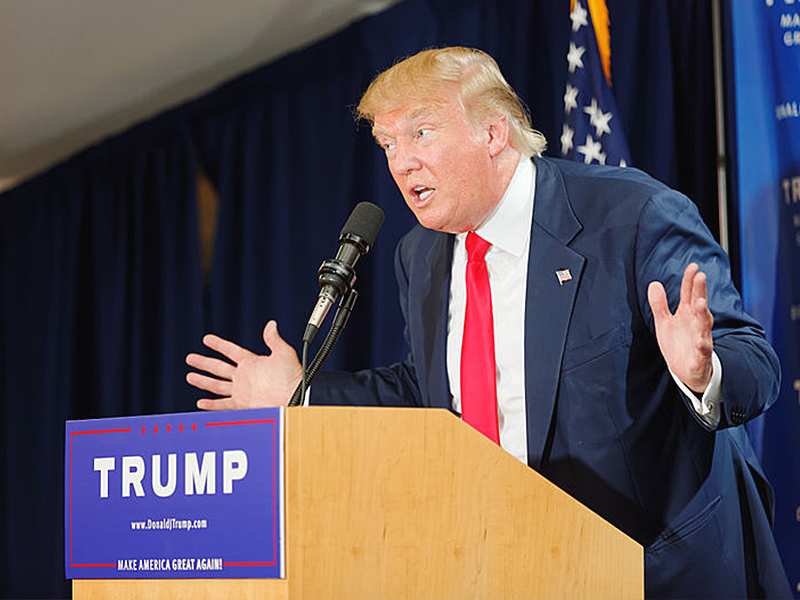Thirty-three Canadian rabbis issued a public statement on July 11 calling on the federal government to suspend the Canada-U.S. Safe Third Country Agreement. The initiative was led by Rabbi David Mivasair of Vancouver’s Ahavat Olam synagogue and quickly received broad support from a number of his colleagues in Vancouver, Montreal, Toronto, Halifax and elsewhere.
“As Canadian rabbis, we call upon the Trudeau government to suspend Canada’s Safe Third Country Agreement with the United States until such time that Canadians can be confident that the United States is, in fact, a country to which refugee claimants can be returned safely,” the statement reads. “Our own Jewish people’s history instructs us of the necessity to find safe refuge in times of turmoil and lethal threat. Our people’s spiritual legacy teaches us that we must not stand idly by the blood of our sisters and brothers, regardless of where they are from.”
Rabbi Michael Dolgin of Temple Sinai in Toronto told The CJN that this is an important issue because Jews know the refugee experience first-hand. “The great Avraham Infeld said that before the establishment of the Jewish state, the most common word you heard after Jewish was ‘refugee,’ ” he said. “Living in a time where the great flow of refugees has again become a global issue, it is a denial of our history for Jewish leadership to remain silent.”
READ: LETTERS REVEAL THE STRUGGLES OF JEWISH REFUGEES IN PERU
Rabbi Lisa Grushcow of Temple Emanu-El-Beth Sholom in Montreal agrees. “For me, the decision to sign this letter was in keeping with our congregation’s decision to sponsor Syrian refugees,” she told The CJN via email. “As Jews, we are commanded to remember the stranger; and we know all too well the experience of being mistreated and unwanted refugees. Like many Canadians, we often feel helpless as to how to respond to the inhumanity we are seeing right now in the actions of the U.S. government. I’m grateful to my rabbinic colleagues who initiated this letter, so together, we could raise our voices.”
The Safe Third Country Agreement, which was signed in 2004, is based on the principle that people seeking refugee status must file their claim in the first safe country they arrive in. Canada currently considers the United States a safe country, so if an asylum seeker comes here from the United States through an official border crossing and claims refugee status, that person will be refused entry and told to make a claim in the U.S.
“The Trump administration’s decision to separate children from their families seeking refuge along the U.S.-Mexican border and its neglect of a plan to reunite them seems to us to amply demonstrate that the U.S. is not a safe country to which refugees should be returned,” the rabbi’s statement argues.

“The agreement requires the Canadian government to review continually the human rights record of the U.S.… At this time, it is clear beyond any reasonable doubt that Canada must review and re-evaluate the U.S. qualification as a safe third country.”
“I signed onto the statement because ‘love of stranger’ is, for me, a key Jewish value,” said Rabbi Ed Elkin of the First Narayever Congregation in Toronto. “In ancient times, but surely just as much today, the most revealing test for the ethical and spiritual level of any society is how they treat the strangers in their midst. I see the U.S., my home country, as failing this test under this administration. That’s why I support suspending the safe third country act at this time.”
“U.S. leaders are displaying their power by attacking the most vulnerable,” said Rabbi Laura Kaplan, a Vancouver-based educator at the Vancouver School of Theology who signed the letter. “Torah knows this temptation, so it tells us to protect the oppressed and limit the powerful. Thus, the least a rabbi can do is ask Canada not to place refugees in harm’s way.”
Both the NDP and Conservative parties called for a special meeting to discuss the influx of asylum seekers at the Canadian border on July 12, with the NDP saying that they are concerned about “the lack of support” for the asylum seekers coming from the U.S., while the Tories want to meet to discuss the response to what they consider a “border crisis.”






